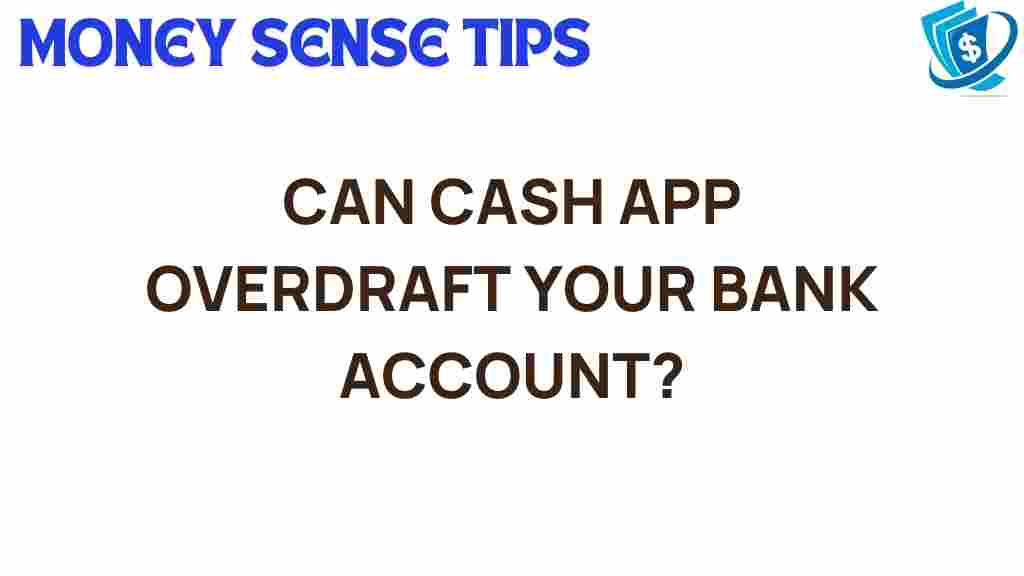Can Cash App Overdraft Your Bank Account?
If you’re using Cash App for your digital payments, you might be wondering about the implications it has on your banking transactions. Specifically, can Cash App overdraft your bank account? In this article, we will explore the nuances of Cash App, overdraft situations, and how they relate to banking and financial services. As digital payments become increasingly prevalent, understanding your options for money management becomes essential for users.
Understanding Cash App and Its Role in Financial Services
Cash App is a popular mobile payment service that allows users to send and receive money quickly and easily. With features like direct deposit, Cash Card, and investing options, it has become a comprehensive tool for managing your finances. However, like any financial service, it’s crucial to understand how it interacts with your bank account.
What Is an Overdraft?
An overdraft occurs when you withdraw more money from your bank account than you have available. This can result in fees and a negative balance, which can complicate your financial situation. Understanding how overdrafts work in the context of Cash App is vital for managing your money effectively.
The Mechanics of Cash App Transactions
When you make a transaction using Cash App, you are essentially transferring money from your Cash App balance or linked bank account to another person or business. Here are the key points to consider:
- Cash App Balance: If you have a positive balance in your Cash App account, transactions will be deducted from there first.
- Linked Bank Account: If your Cash App balance is insufficient, Cash App may attempt to pull funds from your linked bank account.
- Instant Transfers: If you choose instant transfers to your bank account, Cash App may charge a fee.
Can Cash App Cause Overdrafts?
The answer to whether Cash App can overdraft your bank account hinges on your transaction methods. Here’s how it works:
- If you make a transaction that exceeds your Cash App balance and your linked bank account has insufficient funds, you risk overdrafting your account.
- Cash App does not have an overdraft protection feature, which means you are solely responsible for ensuring you have enough funds in your bank account.
- In case of an overdraft, your bank may charge you a fee for the transaction, which can vary based on your bank’s policies.
Step-by-Step Guide to Avoiding Overdrafts with Cash App
To manage your finances effectively and avoid overdrafts while using Cash App, consider following these steps:
- Monitor Your Cash App Balance: Regularly check your Cash App balance to ensure you have enough funds for transactions.
- Link a Backup Account: If possible, link a backup account with sufficient funds to cover any unexpected transactions.
- Set Up Alerts: Use alerts from your bank to notify you of low balances, which can help you avoid overdrafts.
- Use Cash App Wisely: Limit the number of transactions if you’re unsure about your available funds.
Understanding Fees Associated with Cash App
When using any digital payment service, it’s important to be aware of potential fees. Cash App has its own fee structure, which may impact your overall banking experience. Here’s what to look out for:
- Instant Transfer Fee: Cash App charges a fee for instant transfers, which is usually a percentage of the transaction amount.
- ATM Fees: If you withdraw cash using your Cash Card at an ATM, there may be additional fees.
- Overdraft Fees: If you do end up overdrafting your bank account due to Cash App transactions, your bank may impose an overdraft fee.
Troubleshooting Cash App and Overdraft Issues
If you find yourself facing issues with overdrafts or Cash App transactions, consider the following troubleshooting tips:
Check Your Bank Account Balance
Always keep an eye on your bank account balance before initiating a transaction through Cash App. This will help prevent any unexpected overdrafts.
Review Your Cash App Settings
Ensure that your linked bank account details are accurate and that you understand how funds are being transferred. Check your settings to avoid potential errors.
Contact Cash App Support
If you encounter issues with transactions, don’t hesitate to reach out to Cash App support. They can provide assistance and clarify any questions regarding fees or overdraft situations.
Consult Your Bank
If you experience an overdraft, contact your bank immediately. They can provide information about fees and help you understand your options for resolving the negative balance.
Conclusion
In summary, while Cash App itself does not directly cause overdrafts, the way you use it can lead to overdraft situations in your linked bank account. By understanding how Cash App transactions work and actively managing your financial resources, you can avoid unnecessary fees and maintain a healthy banking experience. Always stay informed about your account balances and cash flow to ensure effective money management.
For more insights on digital payments and financial management, check out our comprehensive guide. Understanding the nuances of services like Cash App can empower you to make smarter financial decisions.
By taking proactive steps, you can enjoy the convenience of Cash App while safeguarding your finances from overdrafts and associated fees.
This article is in the category Services and created by MoneySenseTips Team
